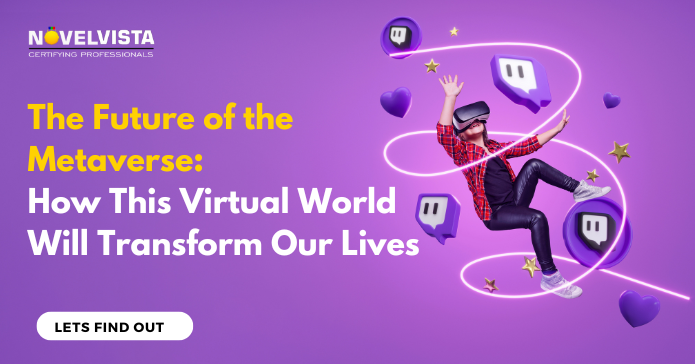Enroll Now and Get Upto 30% Off
* Your personal details are for internal use only and will remain confidential.

Last updated 20/07/2023

The metaverse is a hot topic right now, and there's a lot of speculation about what it will mean for the future of technology. Some people believe that the metaverse will be the next big thing, while others are more skeptical.
So, what is the metaverse? The metaverse is a virtual world that is created by the convergence of virtual reality (VR), augmented reality (AR), and the internet. In the metaverse, people will be able to interact with each other and with digital content in a way that is more immersive and realistic than ever before.
There are many potential benefits to the metaverse. For example, the metaverse could be used to improve communication and collaboration, provide new educational opportunities, and create new forms of entertainment. However, there are also some potential risks associated with the metaverse, such as addiction, privacy concerns, and the potential for cyberbullying.
It's still too early to say what the future of the metaverse will be. However, it is clear that the metaverse has the potential to revolutionize the way we interact with the world around us.

The metaverse is still in its early stages of development, but there are already a number of different ways that it is being used. For example, the metaverse is being used for:

According to a report by Grand View Research, the global metaverse market size is expected to reach $280.9 billion by 2025, growing at a CAGR of 55.6%.
A survey conducted by Accenture revealed that 64% of consumers are interested in virtual reality experiences that can be accessed from home.
In 2021, the global virtual reality gaming market was valued at $7.3 billion, and it is projected to reach $45.09 billion by 2027, as per Research and Markets.

The metaverse has the potential to revolutionize the way we interact with the world around us. However, there are also some challenges and opportunities that need to be considered.
Challenges:

It's still too early to say what the future of the metaverse will be. However, there is a lot of potential for the metaverse to revolutionize the way we interact with the world around us.
The metaverse could have a major impact on the way we work, learn, and play. It could also change the way we communicate with each other and the way we interact with businesses.
Only time will tell what the future holds for the metaverse. However, it is clear that the metaverse is a technology that has the potential to change the world.
The metaverse holds tremendous potential to reshape various aspects of our lives, from social interactions and entertainment to work and education. It promises a future where the physical and digital worlds seamlessly blend together, creating new opportunities and experiences. However, it is essential to address challenges such as privacy, inequality, and addiction to ensure a balanced and inclusive metaverse. By harnessing the advantages while mitigating the disadvantages, we can shape a future metaverse that enriches our lives and promotes a thriving digital society.
Manish has more than 13 yrs of experience in IT Industry and has worked as ITIL Head with expertise in the areas like Enterprise IT Transformation, ITSM, SIAM, Blockchain.
* Your personal details are for internal use only and will remain confidential.